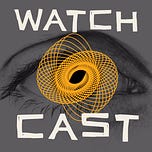Up to now, this podcast series has featured my fellow movie critics — colleagues in the trenches of the good, the bad, and “Cats” — but I’ve been wanting to get a filmmaker in here, and with Mason Daring, I have my chance. (There will be others, I promise.) Mason is a subscriber to the Watch List and an active participant in the comments sections, and over the past year and a half we’ve grown friendly. More to the point, the man is extremely accomplished in his field: As a composer, Daring has provided the scores for every one of John Sayles’ films — except, he says, for 1983’s “Baby, It’s You,” which was mostly Springsteen songs because the movie basically is a Springsteen song — as well as indie film classics like “Dogfight” (1991) and “The Opposite of Sex” (1998), big-budget Hollywood dramas like “Music of the Heart” (1999), and my wife’s favorite movie, “A Walk on the Moon” (1999). Lots of TV work, too. The theme for PBS’s “Frontline”? That’s Mason.
When I asked Daring which great film of the 21st century had a great score, or at least one he wanted to discuss and dissect, he chose “Michael Clayton,” Tony Gilroy’s 2007 dramatic thriller of corporate corruption and personal redemption that’s a high point in George Clooney’s filmography and the movie that won Tilda Swinton a Best Supporting Actress Oscar. (Tom Wilkinson, above left, got a Best Supporting Actor nomination for his role as a white-shoe attorney who goes spectacularly off the rails — a great performance that didn’t stand a chance in the year of “No Country for Old Men” and Javier Bardem’s fearsome Anton Chigurh.)
I’m delighted to spotlight “Michael Clayton,” which has held up beautifully as a no-frills, high-wire throwback to the 1970s moral thrillers of Sidney Lumet and Sydney Pollack (the latter of whom has a juicy part here as Clooney’s boss). Yet on revisiting the film for the first time in 16 years — it’s streaming on HBO Max and a three-buck rental from the usual suspects — I was struck by how minimal James Newton Howard’s music actually is. A civilian like you or I might pick as an exemplary score one that had lots of strings and brass, that announced itself at every plot turn — that John Williams-ed the hell out of everything — but that’s exactly why I was glad to have a composer on board to talk about the niceties of sound-design scoring and when traditional melody might get in the way. The following discussion is one of the most illuminating WatchCasts yet: A peek under the hood of a craft that may be at its best when we don’t notice it at all.
The original soundtrack album for “Michael Clayton” is available on Spotify and other music services if you’d like to have a listen before, during, or after the discussion. And, yes, the movie’s well worth a revisit, if only to smell the desperation wafting off Swinton’s general counsel and admire Clooney’s exhausted cool. This WatchCast is available as well on YouTube, where you get a couple of film clips as a visual aid. Enjoy the conversation — I certainly did.
Thanks for listening! Have any thoughts? Want to suggest a movie for this series? Don’t hesitate to weigh in.
If you enjoyed this edition of Ty Burr’s Watchcast, please feel free to pass it along to friends.
If you’re not a paying subscriber and would like to sign up for additional postings and to join the discussions, here’s how.













